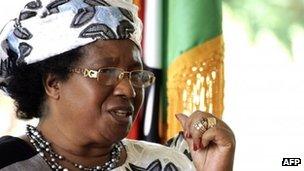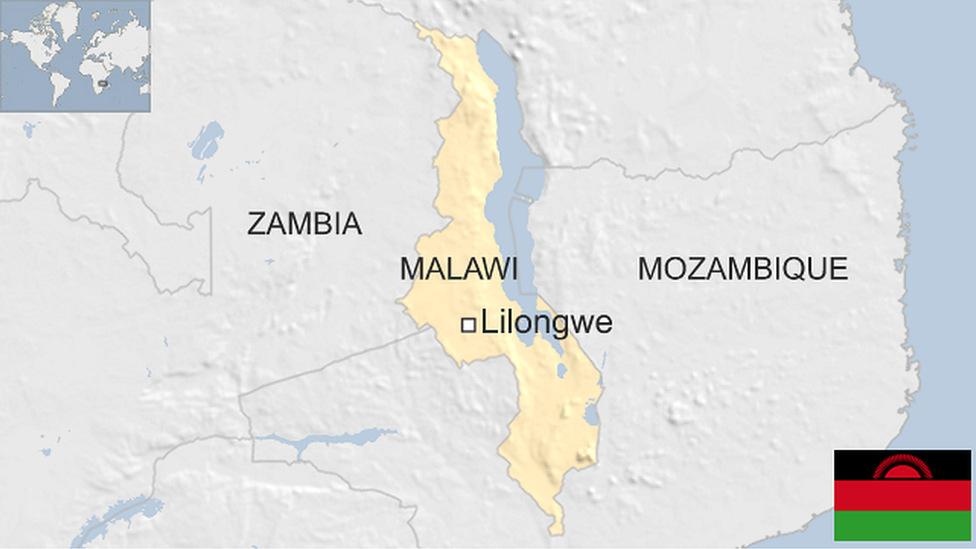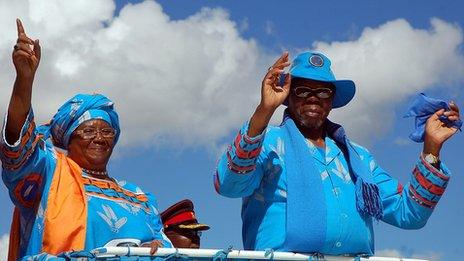Malawi devalues kwacha by 33%, leading to panic-buying
- Published
- comments

New President Joyce Banda has reversed several of her predecessor's policies
Shoppers in Malawi have been scrambling to buy basic goods, fearing huge price rises after the currency was devalued by 33%.
The BBC's Raphael Tenthani in Blantyre says that many shops had run out of staple foods such as sugar, cooking oil and bread by the end of Monday.
The kwacha was devalued as part of moves by the new government to restore donor funding.
The former government had rejected IMF calls to devalue the currency.
Our reporter says that other goods such as rice, maize flour and orange squash were running short in Blantyre's Chichiri shopping centre - the main retail area in Malawi's biggest city.
He has been told that the same panic-buying is also happening in Malawi's main towns.
The scramble comes despite economists saying they did not expect the devaluation to immediately lead to higher prices, as many businesses were expecting the move and were already using the new exchange rate.
The central bank announced that one dollar would now be worth 250 kwacha, up from 168, while the peg to the US currency would be scrapped.
"The devaluation of the kwacha and the liberalisation of the foreign exchange market are expected to continue the government's efforts to reach agreement with the IMF," said Reserve Bank of Malawi Governor Charles Chuka, adding that this would hopefully lead to more donor funding in the next few months.
The International Monetary Fund has long urged Malawi to cut the value of its currency, saying this would boost exports and reduce demand for imports.
However, former President Bingu wa Mutharika, who died in April, had rejected the calls, fearing it would increase inflation.
New President Joyce Banda is trying to improve relations with donors and get aid restored.
About-turns
In recent years, Malawi has run short of foreign currency after donors cut aid and demand fell for its main export, tobacco.
This led to a lack of fuel in the country.
In the four weeks she has been in power, President Banda has reversed several government policies.
Last week, she said she did not want Sudan's President Omar al-Bashir, accused of war crimes, to attend a summit in July.
She says she feared the "economic implications" if Mr Bashir attended the African Union meeting in the country.
She has also fired Mutharika's widow, Callista, from her job as coordinator for safe motherhood, the AFP news agency reports.
- Published5 May 2023

- Published10 April 2012
